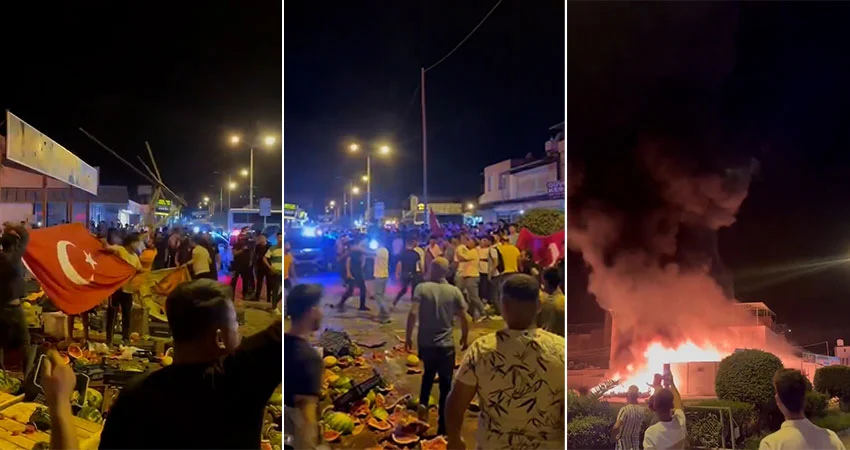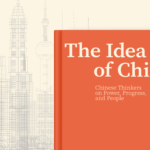Summary by Geopolist | Istanbul Center for Geopolitics:
The article discusses Turkey’s evolving refugee issue, highlighting the political ramifications of hosting over 3 million Syrians. Initially adopting an open-door policy, Turkey’s stance shifted due to rising political pressure and economic challenges. The refugee presence impacted elections, with both ruling and opposition parties adopting more restrictive policies. The situation intensified in recent elections, leading to significant political shifts and a growing anti-refugee sentiment. The future remains uncertain, with potential for further politicization amid ongoing economic and social challenges.
For more details, you can read the full article here below.
The Gradual Emergence of the Refugee Issue in Turkiye
As the protection status of Syrians has became increasingly less “temporary” in Turkish politics, President Recep Tayyip Erdoğan finds himself in a political conundrum. The growing opposition and politicisation of the issue has gradually shrunk his supporter base, and has led to a deepening movement against refugees in the country.
With the eruption of the civil war in Syria, Türkiye adopted an open-door policy to accept refugees fleeing from the atrocities, despite lacking extensive infrastructure and a modern legal framework. By 2011, the number of Syrians quickly surpassed 100,000, which was defined as the psychological threshold. Fast-forward to today, Türkiye continues to host more than 3 million Syrians as temporary protection beneficiaries along with an additional 115,000 refugees, making it the largest refugee-hosting country in the world.
A natural question arises, particularly in light of the recent upsurge of extreme-right movements across Europe: “What was the reaction of the Turkish electorate to these policies, and what impact did the refugees have on elections?” Until recently, scholars of Turkish politics agreed that issue-voting with respect to refugees had been limited. This is mainly due to other significant political events, including but not limited to security concerns in 2015, the attempted coup in July 2016, and the introduction of the presidential system through a referendum in 2017, which all overshadowed the refugee issue. President Erdoğan’s discourse on religious and humanitarian grounds also played a role in minimising the issue. The refugees only began to show their impact gradually starting with the 2018 presidential elections.
Unlike in Europe, this impact did not result in the rise of an extreme-right party in Türkiye. This lack of success might be attributed to multiple factors, none of which imply that refugees did not impact the elections in Türkiye. A closer look at the changes in the country since 2018 reveals that both the incumbent and opposition parties have adjusted their policies to be more responsive to voters’ demands regarding refugees and migration governance in general. On the one hand, Erdoğan and the Justice and Development Party (AKP) government have initiated a series of restrictive policies targeting refugees while emphasising the principle of a voluntary, safe, and dignified return. Policies such as blocking refugees’ access to health services beyond their registered cities, removing them to where they are registered, blocking internal movement across the country, or even deportation aim to decrease the visibility of refugees in Türkiye by restricting their certain rights. On the other hand, the opposition parties, especially the Republican People’s Party (CHP), as the main opposition, have gradually radicalised their stance on the issue by promising more limitations.
The first discernible policy shifts by the government occurred in early 2018. Aiming to reduce the visibility of Syrians and disperse them across the country, Istanbul and nine border cities closed their doors to new registrations. Human Rights Watch argued that newly arrived Syrians were denied access to healthcare and education, and were coercively deported back to Syria, violating the principle of non-refoulement. Despite Erdogan winning the 2018 presidential elections in the first round, the restrictive policies continued. By the end of that year, the Presidency of Migration Management (PMM) took control of the refugee determination process, which had been previously directed by the UNHCR. Although the PMM does not announce refusal rates, there has been a sharp decrease in the application numbers since the takeover, with less than half of the applications being recorded compared to the previous year. The reports disclose that the application process has almost de facto closed to Afghan applicants, as Turkish authorities do not recognise their refugee status. These policy changes, however, did not stop the gradual transformation of the refugee issue into a politicised one.
The 2019 local elections marked a significant loss for Erdoğan with the AKP losing major metropolitan cities such as Istanbul and Ankara to the CHP after decades of control. Although refugees were not central to the debates in these cities, the government responded with further restrictive policies, such as removing unregistered Syrians from Istanbul. The issue was more prominent in places like Bolu, where the mayoral candidate promised to cut all social aid to Syrians and followed it through after the election. Hence, starting with 2019, we can observe the rise and success of extreme-right political actors focusing on anti-immigrant/refugee sentiments. This was later followed by the formation of the single-issue and anti-immigrant Victory Party (ZP) under the leadership of Ümit Özdağ in 2021.
The presidential elections of 2023 demonstrated the greatest shift on the refugee issue. Amid an economic crisis, the newly established ZP managed to increase the saliency of the issue but received only 2.3 percent of the votes, insufficient to secure a seat in parliament due to the seven percent threshold. Yet ZP’s decision to support the opposition candidate, Kemal Kılıçdaroğlu, in the runoff election perhaps caused the most significant intensification of the refugee debate. Recognising the need to garner additional support, Kılıçdaroğlu said “You [AKP] knowingly brought more than 10 million refugees to this country … I am announcing it here – as soon as I come to power, I will send all these refugees home. Period.” Later it was revealed that Kılıçdaroğlu ceded the control of the Interior Ministry and Intelligence Services to Özdağ in return for the support of the ZP. Despite these efforts, President Erdoğan managed to continue his incumbency for another 5 years by winning the elections in the second round.
The 2024 local elections dealt a final blow to the AKP, which lost its leading position to the CHP after 22 years. Apart from holding the metropolitan cities, such as Istanbul, Ankara, and Izmir, the main opposition party also won municipalities in traditional AKP strongholds. For instance, in 2018, Erdoğan’s party received more than half of the votes in Kilis, a small city on the border of Syria. By 2024, the AKP’s vote share in Kilis decreased to less than 30 percent, resulting in the first victory for the CHP there in 35 years. Kilis holds significant importance for the AKP, as the majority of its population consists of Syrian refugees. In fact, MPs from the AKP have argued that the city should be recognised with the Nobel Peace Prize for the local people’s hospitality. Such shifts cannot be directly attributed to the presence of refugees without further academic research, but it is clear that their presence negatively affected the incumbent party.
On the election night, President Erdogan declared: “We will assess the messages given by the people at the ballot box with the utmost accuracy and objectivity, and take the necessary steps accordingly.” Commenting on what lies in the future for refugees in Türkiye is challenging, as it will certainly not be an easy process. At this stage, it seems almost impossible to fully integrate Syrians into Türkiye. Concurrently, the voluntary return policies cannot adequately address the issue. Erdogan has found himself in a conundrum as further politicisation of the issue gradually shrinks his supporter base. Bringing an attainable solution to the problem would require initiating dialogues with the Syrian authorities for the return of refugees. This, in turn, stipulates a rapprochement with President Bashar Al-Assad after harsh remonstration over the years, and who refuses all dialogue until the Turkish forces are withdrawn from Northern Syria. Current operations in those areas are justified by the Turkish government as necessary to eradicate potential Kurdish terrorism in the region, which consolidates the only remaining nationalist voter base of Erdogan.
The refugee issue has become slowly politicised in Türkiye, leading to the erosion of the government’s ruling mandate. The opposition has exploited anti-immigrant attitudes, limiting the policy options of the incumbent, and leading to the adoption of more restrictive policies over time. The ambiguity surrounding the future of Syrians in Türkiye is likely to mobilise more people towards anti-refugee stances, especially in the context of a deepening economic crisis.
By: Samet Apaydın







